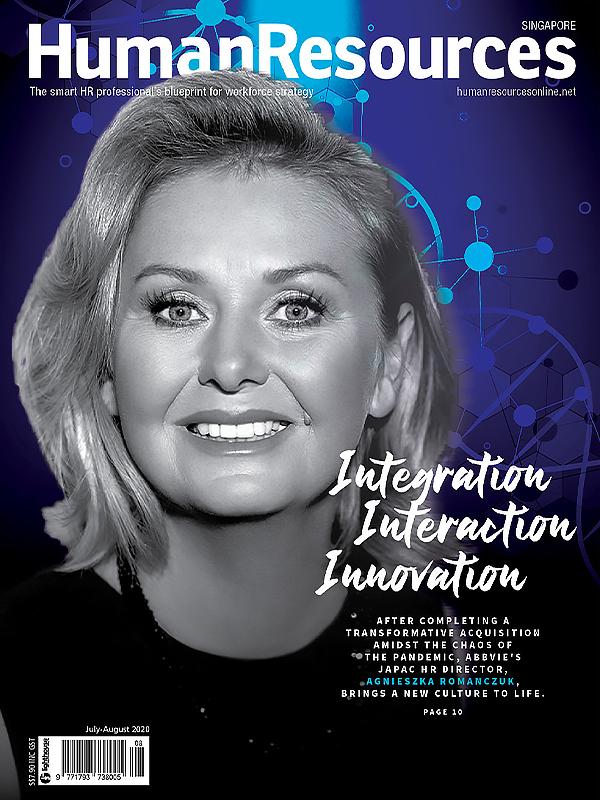This article is brought to you by TMF Group.
With HR stepping up to the crisis, considerations such as return-to-office plans, employees’ mental health, payroll regulations, and more have taken the spotlight. Here’s how HR directors can make recovery smooth and effective.
A new normal is no more a cliched term that we talked about in tracking progress – it has now truly arrived. HR has become more important than ever before, and leaders have stepped up to take the workforce on this journey.
With this in mind, we’ve curated key considerations for HR directors in making the move to a more adaptive HR model, through extensive research by TMF Group, titled The HR director’s guide to successfully navigating the post-pandemic ‘new normal’.
Priority 1: Plans for the return to office
Once considered an optional employee benefit, remote or flexible working has become the go-to mode of work. While some teams struggled to adapt to this mode on a short notice, technology has, thankfully, made the process almost seamless. With remote working either being a default work arrangement per government guidelines, or implemented by some companies till further notice, it’s time for HR directors to consider the next steps. For instance, does it make sense to continue having a physical office space, given that remote working is a viable option for the long term?
The new normal brings safe management measures, such as a limit on the number of employees at the workplace at one time. Thus maintaining a physical office space may require more spatial planning. HR would hold greater responsibility for implementing measures that comply with the government’s health and safety guidelines.
As such, the HR lead is advised to conduct a holistic company review to understand the future needs of the business, and determine the implications of maintaining a physical office space.
Priority 2: Keeping up with payroll regulations
Despite the changes brought about by the pandemic, payroll undoubtedly remains a top priority. A recent report has found that APAC jurisdictions lead the way in many aspects of both payroll and benefits. In Singapore, for instance, the government has put in place strong state-funded schemes to aid businesses during this tough period.
While there have been changes to payroll regulations, firms may consider being more agile with their benefits to better support their employees. In the process, however, compliance could become a huge challenge. Thus, it’s imperative that HR evaluates: What are the key considerations of a remote working benefits policy? Do our HR and payroll departments have enough support to stay compliant with new laws? Is there a need to outsource parts of or the whole process to ensure compliance?
Priority 3: Rewarding and retaining staff without impacting cash flow
In times where cash flow may be tight, many firms may have either implemented or are considering cost-saving measures such as temporary pay cuts, reduced work hours, and/or promotion freezes. Employee benefits may have taken a backseat, at a time where employees may actually be working even harder and longer to keep the company afloat.
As a result, employee engagement through incentivisation becomes an even bigger aspect to consider – with these key benefits affected, how else can HR keep employees incentivised, and ultimately retain them, all without impacting cash flow?
One possibility to consider is an equity interest for top performers and key talent to increase employee loyalty. Bespoke employee benefits, or alternative benefits such as additional leave days can be pondered over. The most important thing to remember, overall, is investing in your personnel now – it'll go a long way in growing employee loyalty and emerging from these times with a stronger workforce.
Priority 4: Providing mental health support to employees
Job stability, working in isolation, surviving a pandemic – there is so much going through your employees’ minds right now, and their mental health has arguably become a very important focal point.
How can HR help? Apart from the first step of acknowledging what is often considered a taboo subject, you could think about making available relevant short courses that employees can attend on the topic. Additionally, you could also consider signing your workforce up for webinars or virtual sessions hosted by external experts.
Overall, how HR handles its workforce responsibilities now, which eventually link back to the business’ needs, goes a long way in taking the company through this new normal and emerging stronger.
For more quick tips on how to do so, do refer to this exclusive HR Director’s guide.
TMF Group is ISO/IEC 27001:2013 and ISAE 3402 certified along with Outsourced Service Providers Audit Report (OSPAR) attestation for its Singapore operations, which closely follow the requirement of MAS Outsourcing Guidelines. To get in touch with the TMF Group team for support on your payroll outsourcing process, please contact them via this form.
Established psychologists from Singapore, Malaysia, Indonesia, Philippines and the US are speaking at the National Counselling & Psychotherapy Conference taking place virtually on 10-12 November. Pre-order your tickets at the conference to gain deep insights into prevalent triggers of poor mental well-being and the support available. Group discounts with three pax or more registrations are available at an attractive price! Speak to Priya Veeriah, Regional Production Manager, to register your team of well-being champions today.
Find out more here.



